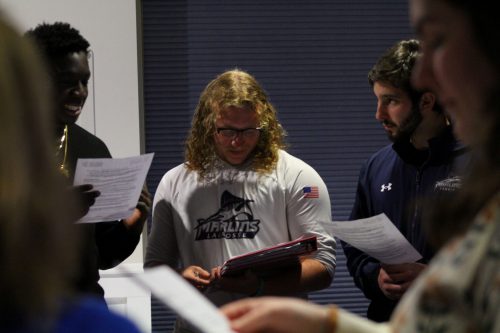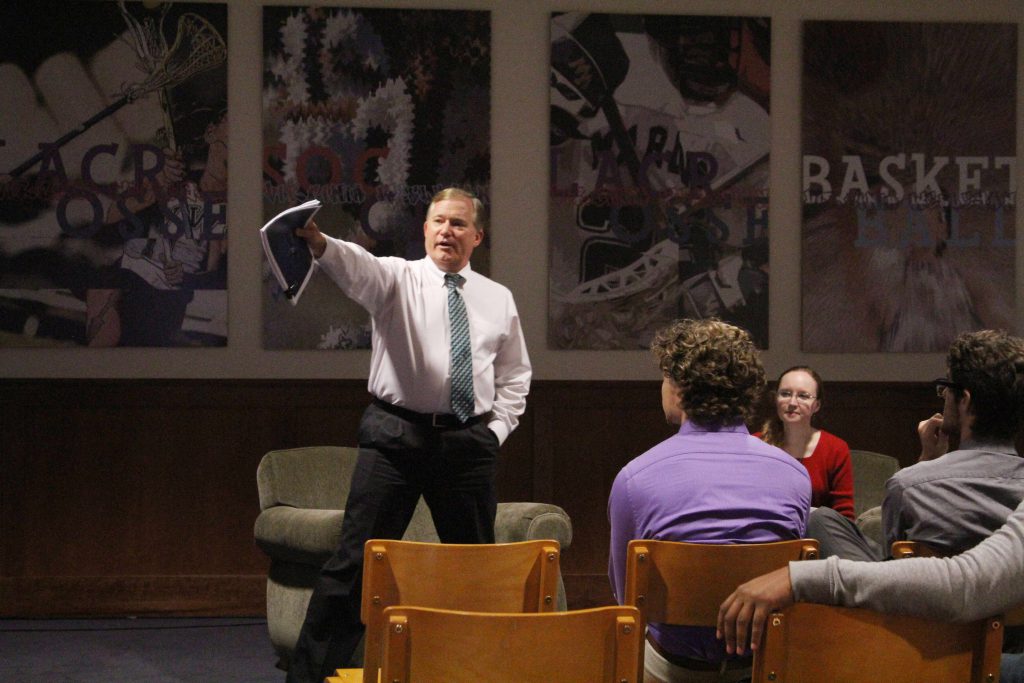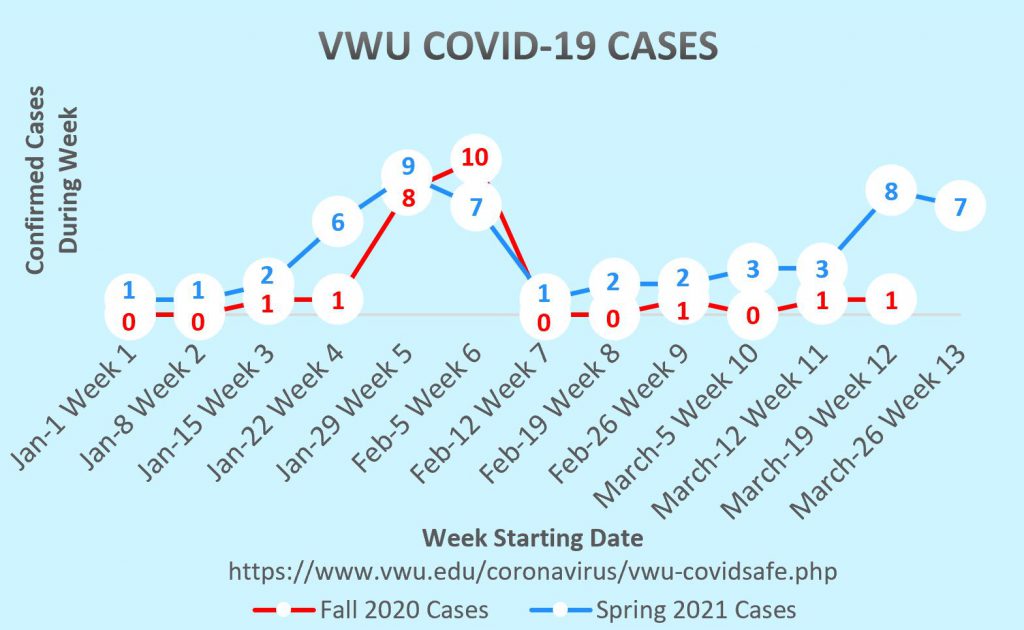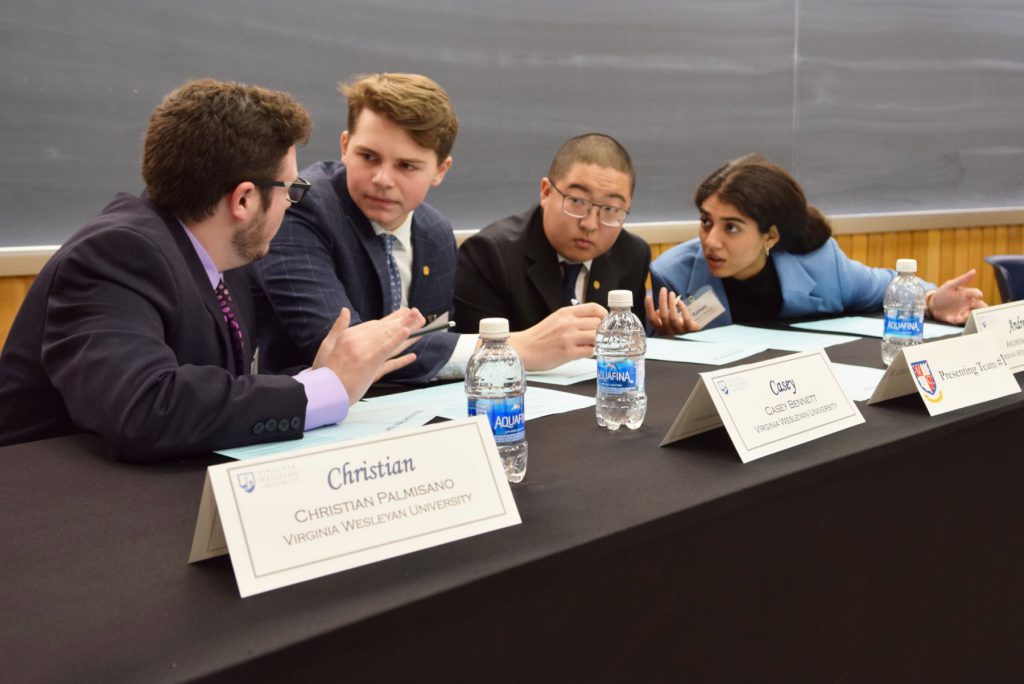Participants gather in Pierce Suite for the dialogue-centered workshop on inclusive leadership strategies
Theresa Dill|Marlin Chronicle
To account for changes surrounding Diversity, Equity and Inclusion (DEI) policies, Virginia Wesleyan University replaced what was known as the Diversity, Equity, and Inclusion Council (DEIC) with The President’s Council on Inclusive Communities (PCIC).
According to Dr. Keith Moore, vice president of Campus Life and co-chair to the PCIC, the council is appointed at the beginning of each academic year.
“The committee is made up of a cross-section of campus groups to include faculty, campus life, academic affairs, and athletics. We also welcome members of the student government association to participate,” Moore said.
Part of the mission of the DEIC is to provide programs enhancing the educational value of the campus through dialogue. These include the Virginia Center of Inclusive Communities (VCIC) workshops, one of which occurred on April 17. This workshop was sponsored by the PCIC and the Robert Nusbaum Center in partnership with the VCIC.
“The council is responsible for the planning and coordination of programs celebrating the vibrant culture of our campus community and greater society,” Moore said. “Through our collaboration with the Virginia Council for Inclusive Communities, whose Hampton Roads office is located on our campus, we offer opportunities for faculty, staff and students to come together for workshops throughout the year.”
The workshop, “The Hidden Costs of Groupthink: Leadership that Builds Inclusive Teams,” was led by Meagan Starks. Starks is the Director of Hampton Roads Programs at the VCIC. The aim of this workshop, according to the Robert Nusbaum Center, is to challenge students to think critically about how decisions are made, whose voices are heard and how to lead with intention and impact.
During this event students were given the opportunity to identify their own leadership style. These included action-oriented, big picture thinkers, analytical and empathetic styles of leadership. Students then discussed the strengths and weaknesses of these leadership styles and strategies for building inclusive teams.
“Inclusivity to me ultimately means being able to understand different perspectives and allow everyone to have a voice,” freshman Grace Whitt said. “Overall, it’s important to strive to be a good leader that focuses on inclusivity to make sure that the most effective result is produced based off combined effort of everyone involved.”
Whitt, who discovered she aligned with the analytical style of leadership, said she would use what she learned during the workshop in the future career-wise and in her personal life.
“I could apply what I learned in this workshop to my future career in many ways. Understanding how to lead overall can heavily translate into being a leader in the workplace, whether it’s in a manager position or in a group activity,” Whitt said. “Additionally, understanding conflict resolution styles can help in personal life, as well as professionally, when it comes to relationships and dealing with independent situations that call for different conflict resolution styles.”
Kaza Dayton, a senior Hispanic Studies major, coordinator and communications leader and Student Government Association member, has attended many PCIC meetings in an effort to try to get students involved and attend the events.

Meagan Starks, the director of Hampton Roads Programs at the Virginia Center of Inclusive Communities, led the workshop.
Theresa Dill|Marlin Chronicle
“I think that just having people who are informed leaders is really important,” Dayton said. “Informed not just with current events, but informed on knowing themselves, taking the time to sit down and spend 45-50 minutes working through different groups and seeing different perspectives is really beneficial, especially not only in the campus community, but when you join the workforce and you really need those skills.”
“A big discussion from [the workshop] was about the importance of those soft skills, being able to communicate and being able to understand your own leadership style,” Dayton said.
Dayton pointed to a future event, “Pull Up a Chair,” hosted by the Student Government Association on April 30. Representatives from student organizations at the event included Black Student Union, National Pan-Hellenic Council, Latino Student Association, Student Government Association, Sigma Nu and Students Against Continued Homelessness.

The workshop included discussions of leadership and inclusivity.
Theresa Dill|Marlin Chronicle
“We’ll be discussing different things to foster a dialog and a sense of belonging, strengthen student relationships, and with different things going on in the world, like the dissolution of DEI policies and how that’s impacting students,” Dayton said. “So we wanted to foster this space for student leaders to collaborate. One of the things that I wanted to emphasize in this panel is that it didn’t have to be the president of this club. It could be someone who wasn’t on leadership, or someone who just wanted to be represented and had a voice they wanted to share.”
VWU has been recognized for its ethnic diversity and social mobility with the U.S. News & World Report, ranking the school No. 175 in National Liberal Arts Colleges and No. 114 in Top Performers of Social Mobility. VWU is also ranked in the top 30 colleges and universities in Ethnic Diversity.
By Mia Diehl



